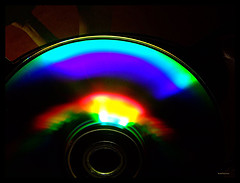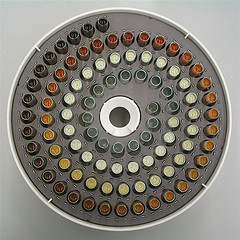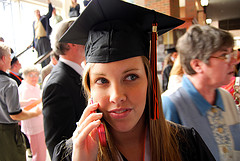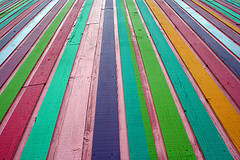October 31st, 2008 by Kevin Lindstrom | No Comments »
Scifinder Scholar Web is a newly developed web interface that provides online access to Chemical Abstracts, CASREACT chemical reactions database, Chemical Abstracts Registry File, and Medline.
This new version of Scifinder does not require the installation of any additional client software.
For more information on how to access Scifinder Scholar Web
Posted by Kevin Lindstrom Liaison Librarian for Chemistry, Chemical and Biological Engineering, Materials Engineering, Electrical and Computer Engineering, and Earth and Ocean Sciences.
Posted in Atmospheric Science, Chemical and Biological Engineering, Chemistry, Civil Engineering, Earth and Ocean Sciences, General Science, Main, Materials Engineering, Mechanical Engineering, Physics, Science - undegraduate classes, Wood Sciences | No Comments »
October 29th, 2008 by Eugene Barsky | No Comments »

Our most recent article written by Dean Giustini and myself gets some good coverage in physiotherapy field…
UBC folks can see the full text here – http://www.swetswise.com/eAccess/viewFulltext.do?articleID=38506191
Your institution might have a different subscription to Physiotherapy Canada…
Barsky E., & Giustini D. Web 2.0 in Physical Therapy: A Practical Overview. Physiotherapy Canada, 2008; 60(3): 207-215.
Abstract:
In this guest editorial, we focus on the tools of Web
2.0: blogs, wikis, Really Simple Syndication (RSS) feeds,
social networking sites, and podcasting. We believe that
social software transforms how physical therapists (PTs)
obtain, process, and exchange information and how they
adopt best practices. The World Wide Web provides a
well-connected network of practitioners within which
knowledge exchange is open and social—two important
features of Web 2.0.1–3 Open exchange of information
and the freedom to share ideas are facilitated by new
technology. What impact do new information tools
have on PTs? How can these new tools be used to
improve patient care?
** Photo by true2source
Posted in Main, News, Science - undegraduate classes | No Comments »
October 24th, 2008 by Kevin Lindstrom | No Comments »
TRIUMF and UBC’s Department of Physics and Astronomy are proud to present the 2008-09 Saturday morning lecture series on Quantum Physics and Chemistry. We especially welcome guest speakers from the UBC Chemistry Department and from Simon Fraser University to this year’s program. This lecture series will introduce the audience to the essential facts about the quantum world in a systematic and non-technical way, starting with the basics and progressing to more advanced material, at a level appropriate for high school students and members of the general public. It would be excellent enrichment for high school chemistry and physics students. There is no charge for admittance, and students are encouraged to bring friends and interested family members. Teachers and members of the public are also welcome.
Due to the popularity of the series, advance registration is required.
October 25, 2008
10am – 12pm
Prelude to quantum Mechanics: Classical wave motion – Patrick Bruskiewich
Sound waves and the physics of music – Chris Waltham
November 29, 2008
10am – 12pm
Failures of classical physics and the birth of quantum physics – Mark Van Raamsdonk
Lasers and their applications – Kirk Madison
January 17, 2009
10am – 12pm
Quantum physics II – Mark Van Raamsdonk
Quantum computers – Robert Rausendorf
February 14, 2009
10am – 12pm
Quantum chemistry: molecules and chemical bonds – Roman Krems
Quantum chemistry on a computer – Y. Alex Wang
March 28, 2009
10am – 12pm
Quantum tunneling – Patrick Bruskiewich
Quantum weirdness – Bill Unruh
April 18, 2009
10am – 12pm
Quantum mechanics and materials science – Jeff Sonier
Quantum mechanics and subatomic physics – Stanley Yen
Posted in Chemical and Biological Engineering, Chemistry, Earth and Ocean Sciences, General Science, Main, Materials Engineering, Mathematics, News, Physics, Science - undegraduate classes, Statistics | No Comments »
October 22nd, 2008 by Eugene Barsky | No Comments »

An interesting short read from the BBC Science section talks about Stanley Miller’s chemical experiments – http://news.bbc.co.uk/2/hi/science/nature/7675193.stm
The BBC piece refers to the this article published a few days ago in Science –
The Miller Volcanic Spark Discharge Experiment. Adam P. Johnson, H. James Cleaves, Jason P. Dworkin, Daniel P. Glavin, Antonio Lazcano, and Jeffrey L. Bada (17 October 2008). Science 322 (5900), 404. [DOI: 10.1126/science.1161527]
** Photo by tz1_1zt’
Posted in Amusing stuff, Chemical and Biological Engineering, Chemistry, Main, News, Science - undegraduate classes | No Comments »
October 17th, 2008 by Eugene Barsky | No Comments »
Here is the presentation we deliver on Mon Oct 20th 2008 for the Pacific NorthWest Forestry Librarians Group in FPInnovations – Paprican Division in Vancouver, BC
Your comments are very welcome!
Posted in Earth and Ocean Sciences, General Science, Main, Science - undegraduate classes, Teaching, Wood Sciences | No Comments »
October 15th, 2008 by Eugene Barsky | No Comments »

A technology report (PDF) by a Harvard University student shows that of all the digital tools that professors use, Harvard students find most useful online course material and syllabi.
The report said students want courses to have a Web site that contains readings, notes and other content so they can be accessed easily during the semester. The survey is based on responses last December from 328 undergraduates and 120 graduate students.
Is it the same with our UBC folks? Does it ring any bells for our faculty?
** Photo by AdamLogan
Posted in Atmospheric Science, Chemical and Biological Engineering, Chemistry, Civil Engineering, Earth and Ocean Sciences, General Science, Geography, Main, Materials Engineering, Mathematics, Mechanical Engineering, News, Physics, Science - undegraduate classes, Statistics, Wood Sciences | No Comments »
October 8th, 2008 by Eugene Barsky | No Comments »

Released in June 2008 by Thomson Reuters (formerly ISI), this list shows the top ten nations ranked according to output of published journal articles in 22 main fields of science (including general social sciences), based on papers indexed by Thomson Reuters (excluding books, book chapters, and articles published in non-Thomson Reuters-indexed journals) between January 1998 and February 29, 2008.
http://sciencewatch.com/dr/sci/08/jun15-08_1/
** photo by 427
Posted in Atmospheric Science, Chemical and Biological Engineering, Chemistry, Civil Engineering, Earth and Ocean Sciences, General Science, Geography, Main, Materials Engineering, Mathematics, Mechanical Engineering, News, Physics, Science - undegraduate classes, Statistics, Wood Sciences | No Comments »
October 6th, 2008 by Kevin Lindstrom | No Comments »
The 262 new submissions received between Wednesday 1 Oct and Thursday 2 Oct, announced Friday 3 Oct 2008, brought the total number of articles on arXiv past 500,000 — all openly accessible.
There are also more than 200,000 old versions of articles which record all public revisions since 1997. If the linear increase in submission rate continues, arXiv will pass the one million article mark in 2015.
See press release for more details.
Submitted by Kevin Lindstrom Liaison Librarian for Physics and Astronomy
Posted in Chemistry, Earth and Ocean Sciences, General Science, Main, Mathematics, News, Physics, Science - undegraduate classes, Statistics | No Comments »
October 2nd, 2008 by Kevin Lindstrom | No Comments »
The International Year of Astronomy 2009 is a global effort initiated by the International Astronomical Union and UNESCO to help the citizens of the world rediscover their place in the Universe through the day- and night-time sky, and thereby engage a personal sense of wonder and discovery.
Check out the IYA2009 website for information about the initiative as well as additional resources and information on global IYA-sponsored projects.
Interested in Physics and Astronomy research here at UBC? Have a look at the Department of Physics Astronomy and Astrophysics website. Here you will find a full list of faculty and their areas of research.
Submitted by Kevin Lindstrom Liaison Librarian for Physics and Astronomy.
Posted in General Science, Main, News, Physics | No Comments »
October 2nd, 2008 by Eugene Barsky | No Comments »

IEEE has approved six new publications for 2009.
IEEE Solid-State Circuits Magazine
IEEE Transactions on Autonomous Mental Development
IEEE/OSA Journal of Optical Communications and Networking
IEEE Photonics Journal
IEEE Embedded Systems Letters
IEEE Transactions on Computational Intelligence and AI in Games
Now, our faculty have even more venues to publish their research in!
Don’t forget that being a UBC faculty, student or staff you have FULL TEXT access to all IEEE publications 24*7 via the IEEE Xplore Digital Library
** Photo by Kevin Steele
Posted in Main, News | No Comments »





